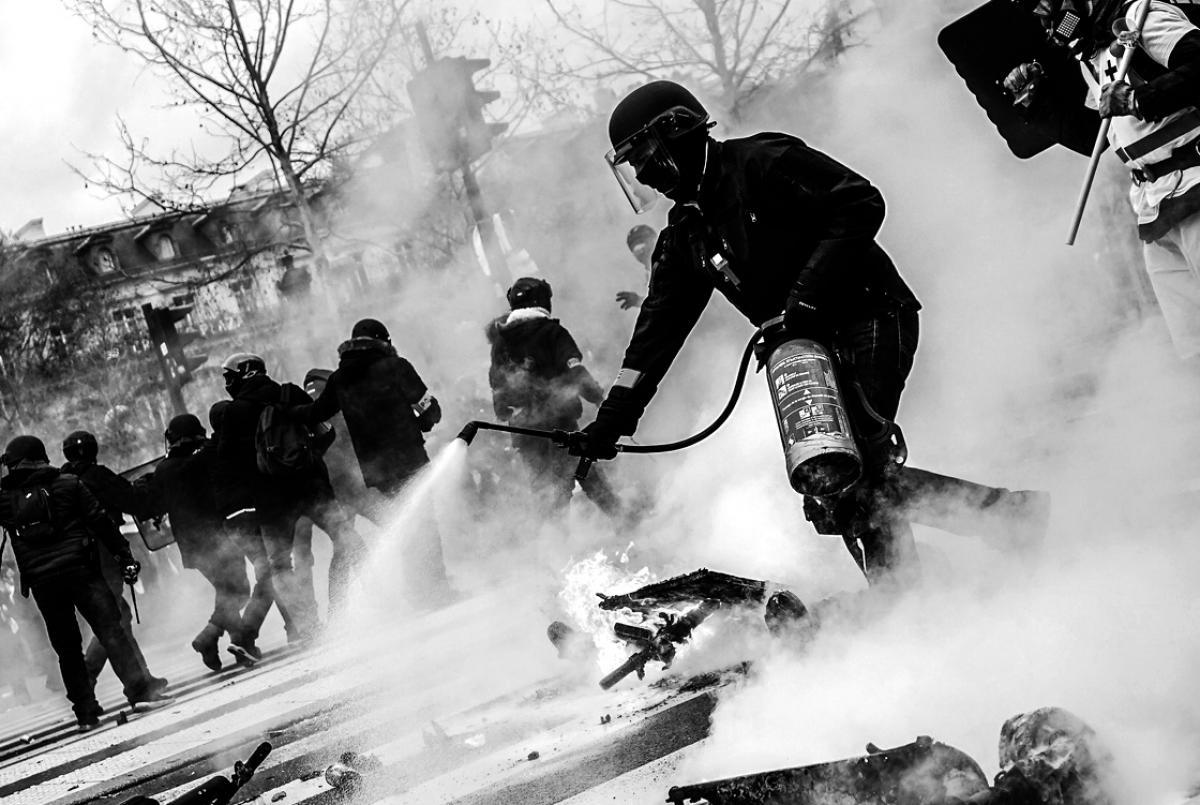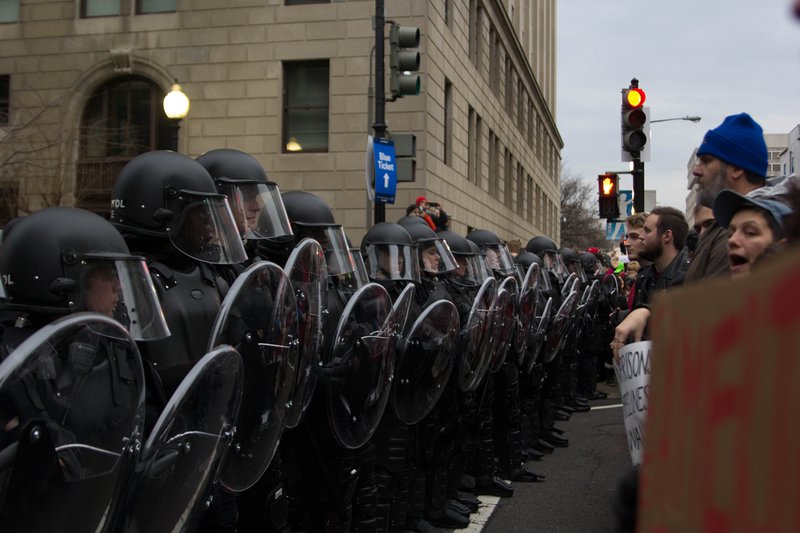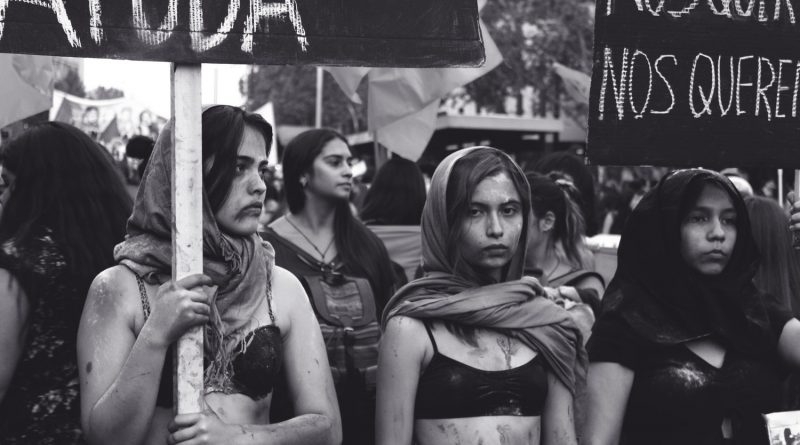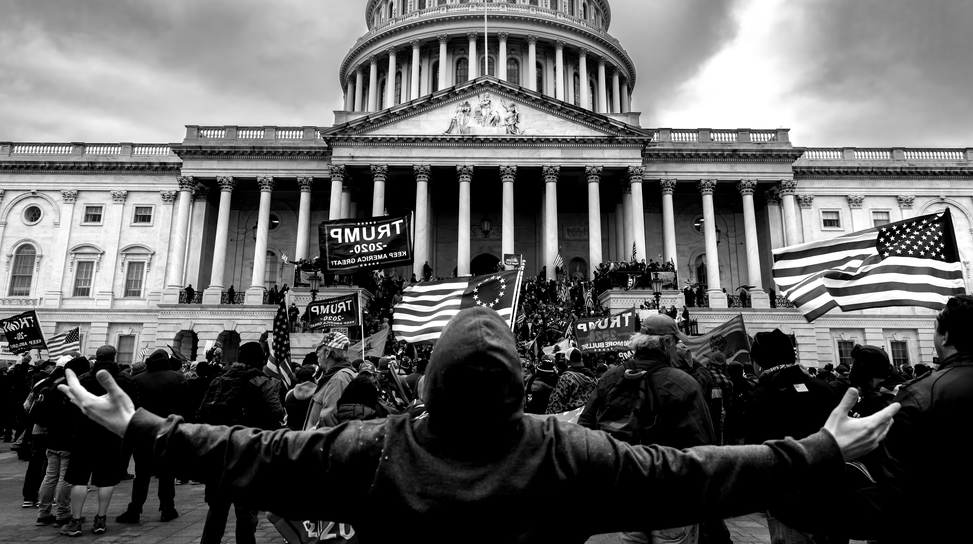By Anna Tsekani,
Unfortunately, political violence is, since time immemorial, a concept that without a doubt has affected and shaped several countries and states throughout the years and can be found throughout history. Sometimes the most difficult part of political violence is the recognition of its types. Political violence today is far more strategic and indirect as distinct from the past. Previously, absolutism was the status quo, surrounding the concept of political violence with its tools being hard power and autocracy. Today’s political agenda does not seem to differ that much. In order to examine the phenomenon of political violence, it is crucial to analyze different theories, such as social, political, psychological and philosophical views. Although, in order to see not only the tip of the iceberg but the whole situation, it is crucial to examine and analyze the psychological perspective of political violence in human nature.
A social-economical framework is very crucial for the examination of political violence since violence affects multiple domains related to individuals. Political violence includes any authorised or unauthorised violence, and more specifically the institutional or anti-institutional forms of political violence and any violence expression against authority, which most of the time are linked to social conflicts, contested events and crimes that have political aims (with or without physical force). The high baselines of these social conflicts derive from inequality and injustice as a way of fighting against them. Most of the time, political violence is internally correlated to terrorism, although the term “terrorism” is not usually adopted due to the difficulty in defining its controversial nature.

Most of the time, it is internally connected to terrorist attacks. Terrorism is not only a socially and politically constructed phenomenon, but it is also a behavioural case. It is actually difficult to distinguish between terrorist behaviour and criminal behaviour, but the perspective that needs to be focused on is the political background of an incident. But the biggest obstacle to its accurate definition and examination is the lack of empirical studies.
The definition of terrorism and its nature, in general, is one of the most controversial subjects, since there is also no particular definition that gets international approval. Although, according to the FBI, terrorism is: “The use of serious violence against persons or property, or threat to use such violence, to intimidate or coerce a government, the public or any section of the public, in order to promote political, social or ideological objectives”.
Terrorism is since time immemorial one of the thorniest issues that today’s society and countries need to face and reach to compromise. According to the historical review, towards the end of the 20th century, terrorism is an internal aspect of a democratic phenomenon. Under the umbrella of democracy and democratic society, it is believed that terrorism is essentially reduced, since the majority of people are more “satisfied” and not so suspicious, due to the fact that they have trust in the institutions and a more open-minded and conciliatory system of governance. But history could disprove that. Between 1968 and 1997, terrorist attacks and incidents tend to appear more frequently in a democratic system of governance.

In order to totally understand the phenomenon of political violence and its consequences, it is vital to examine the impact that political violence has on human beings.
From a psychological perspective, political violence is the deliberate use of power and force to achieve political aims and influence the political background. Political violence is characterised by both physical and psychological acts of violence in order to have an impact on society. ShootingS and aerial bombardments are only a part of the political violence incidents. Most of the time, political violence and terrorism affect not only the governments but also the individuals. Notably, poor people and the disenfranchised suffer the most from such incidents, since they might be the target group or the face oppression group of violence.
According to the World Health Organisation (WHO), the definition of political violence also includes deprivation, the deliberate denial of basic needs and human rights such as freedom of speech or denial of access to food, education, sanitation and healthcare. The WHO estimates that people exposed to political violence might develop some mental distress, including PTSD, depression or anxiety. Withdrawal from society and lack of willingness to engage in political activities cannot be excluded from the psychological consequences of political violence.
Subsequent studies have shown that isolation, aggressive behaviour and lack of social skills are some of the significant ways one copes with political violence since they work as a response mechanism. Without a doubt, political violence could not be faced as the tip of the iceberg, since most of the time it impacts people on a deeper level, in the form of mental health problems.

Political violence affects people’s ability to trust the institutions and the morals of society. Taking part in civil society and having active participation in the political concurrencies could affect the mental health of individuals and it is an internal part of enhancing an individual’s well-being.
The concept of political violence is a multidimensional issue. It can be found throughout daily activities and it is not as rare as it may sound. We witness many forms of political participation that occur as a form of violence for the benefit of governments and political parties. All the aforementioned patterns and human behaviours are strongly encountered today and can confirm how predictable human nature is. In any case, this article raised a variety of questions and concerns that may need to be examined individually, in order to change things in the future.
Reference
- Cindy, A. (2013). Political Violence, Collective Functioning and Health: A Review of the Literatüre. Medicine, Conflict And Survival, 29 (3), 169-197.
- Sousa, C. A. (2013). Political violence, collective functioning and health: A review of the literature. Medicine, conflict and survival, 29 (3), 169-197.
- Steinhoff, P., & Zwerman, G. (2008). Introduction to the special issue of political violence. Qualitative Sociology, 31 (3), 213-220.
- Bosi, L., & Malthaner, S. (2015). Political violence. The Oxford handbook of social movements, 440-451.
- Vincenzo Ruggiero. 2017. Political Violence and Crime. Criminology and Criminal Justice.
- Chenoweth, E. (2012). Is terrorism still a democratic phenomenon?. Uluslararası İlişkiler/International Relations, 85-99.




